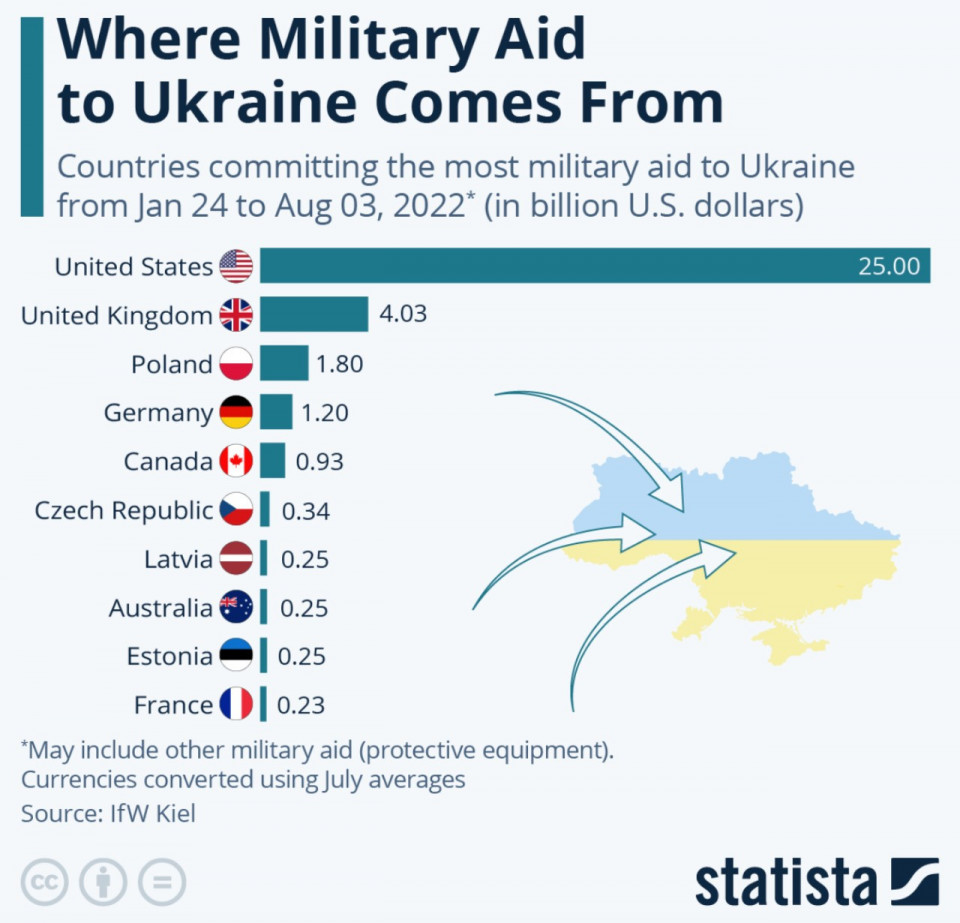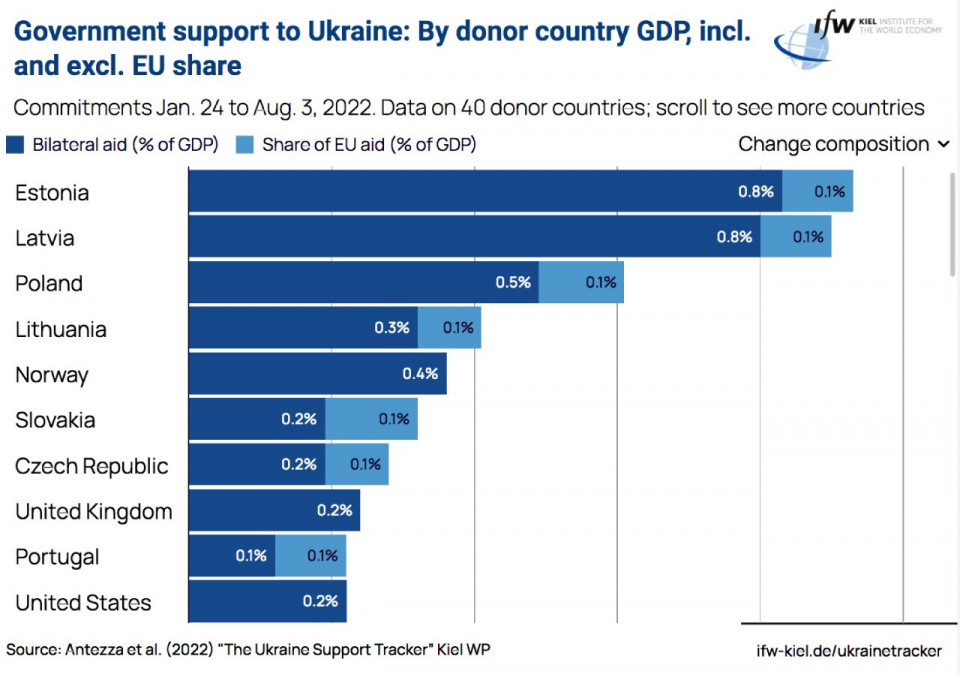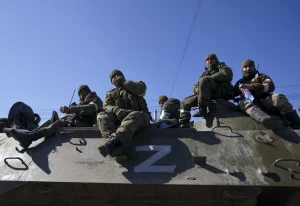
Frightened by a bear: why Germany lacks supplying more military aid to Ukraine
Germany cannot delay the supply of weapons to Ukraine, especially when the Kremlin raises stakes.
Russian President Vladimir Putin has announced partial mobilization. He clearly demonstrated his intention to continue his senseless aggression against Ukraine. But this war impacts not only Kyiv. Realization of this has swept almost all over the world: Reviewing defense doctrines, increasing budgets and a more sober view of their own capabilities.
For example, German Chancellor Olaf Scholtz promised recently to allocate about €100 billion for building up the German army. This amount should make the Bundeswehr stronger, turning it into NATO's largest army in Europe. In his Twitter on May 30, he called it "a huge step for the safety of Germany and Europe."
The Bundeswehr is really difficult to call an exemplary army. In recent years, lack of combat readiness has been reported quite often, including challenges with supplies and equipment maintenance.
Germany’s own army funding under criticism
Three years ago, The Spectator called the German army a "joke." The authors of the article insisted that the country could not perform its functions within NATO. They illustrated it with the fact that Germany forbade the flights of all of its Tiger helicopters due to technical malfunctions in 2019. Things were no better with armored vehicles. The country had to send 44 Leopard 2 tanks and 14 Marder APCs to the Alliance's rapid response forces at that time.
But in reality, Germany was able to provide only 9 and 3 units of these vehicles, respectively. Eurofighter and Tornado warplanes were able to fly for about four months a year while being repaired and maintained for the rest of the year. According to the 2017 parliamentary inspection report, all 6 submarines of the German Navy were not combat ready.
Military aid to Ukraine: Germany with low numbers
It is likely that the money that is promised by the chancellor will really be able to change the situation for the better. However, if the purpose of reforms is the safety of Europe, the money and equipment should be directed towards something else. To Ukraine. After all, the issue of European security is being resolved now.
Unfortunately, the German authorities have refused to recognize this so far. At least, such a conclusion can be made by analyzing the volumes of Berlin’s real (not promised) military assistance to Kyiv. One of the richest EU countries and the world power has only managed to give a few units of equipment, each of which should be literally given after a fierce diplomatic battle. Speaking of the numbers, Germany provided military assistance worth about $1.2 billion as of August 3. Statista’s data on military aid to Ukraine from Western allies speaks for itself.

However, not the entire amount is exclusively lethal weapons. The list includes such items as a field hospital, helmets, and demining devices. But an even more sad picture is when one compares the volume of assistance in the context of countries’ GDP. Estonia is in the lead, whereas the richer Germany is in the bottom.

Why did it happen?
There are several reasons for this. First of all, there is a special relations tradition. Germany has developed friendly relations with Russia for too long and in all of its forms. The two countries fought in the Second World War, although it was worth mentioning where it began: from the Molotov-Ribbentrop Pact and the common parades of the Nazis and the Soviet Army in captured Poland. Then this friendship continued with East Germany, which the Soviet Union actually turned into its outpost in Europe. From this friendship, a whole "Putinversteher" army has grown.
Today they are trying to convince the world of the need to restore normal relations with Moscow, each in one’s line of responsibility. Many Germans are truly convinced of the greatness of Mother Russia, the importance of its culture, and its meaning to the world. Therefore, it is absolutely impossible to go against such a powerful state. Only respect, and reconciliation.
The second reason is money. More precisely, big money and big business. Russia put its roots very firmly into the German economy, and the Germans are happy to make money in the Russian Federation.
And all scandals around the violation of sanctions, such as the supply of Siemens turbines to the temporarily occupied Crimea, or selling components to military equipment, do not make a difference because the amounts are way too attractive. Similar situation is with energy trading. For years, the Kremlin's German politicians have repeated the mantra about the "exceptionally economic nature" of the North Stream 2 project, and turned a blind eye to the growing dependence on gas supply from the Russian Federation. And now for some reason they suddenly see the problem and discover it with an almost sincere surprise that Moscow is blackmailing them.
The third reason is political influence. Perhaps it is a mixture of the first two. For years, Moscow has spent a lot of money on bribery of loyal politicians and even entire parties. Now it's no secret that Die Linke and Alternative für Deutschland (AfD) have been receiving money from the Russian Federation. In response, their parliamentarians either try to promote Russian interest (canceling sanctions, returning to business as usual, restricting support to Ukraine) or simply participate in the Kremlin's information operations such as visiting temporarily occupied territories, participating in the "referendum" commissions, and speaking on Russian TV.
As it became known on September 20-28, another landing of AfD deputies was being prepared for the occupied Donbas. They will enter it through Rostov-on-Don. The program includes visiting Ukrainian prisoners and some settlements. It is not difficult to guess what kind of "truth" about the "crimes of the Kyiv regime" they will see there and will talk about later.
German General missed Ukrainian counter offensive in Kharkiv region
In view of this, it is not surprising that for example, the Bundeswehr Inspector-General Gen. Eberhard Zorn in his September 14 interview for Bild stated that he had not seen the counter-offshore of the Armed Forces of Ukraine in Kharkiv. Instead, this Bundeswehr general sees the possibility that Moscow opens a second front either in Kaliningrad, or the Baltic Sea, or on the Finnish border, or in Georgia, or in Moldova.
He argues that the Russian Federation still has the navy and the air force, and so, if "Putin announces general mobilization, then the problem with servicemen will be resolved." That is, the very top of the Bundeswehr is still convinced that Russia has the "second army of the world" and does not want to believe in the success of Ukrainian fighters for some reason. They are afraid of the offensive of the "terrible Russian bear" and want to hold on to their weapons, justifying it with a "possibility of escalation" by this quasi country that cannot equip their military, that recruits criminals for combat who leave their equipment on the battlefield and escape, whose defense industry depends entirely on foreign technologies. Seriously?
It is good that there are truly bold countries, such as Estonia, Poland, Lithuania, not to mention the United States and the United Kingdom. It is safe to say that next generations will not forgive such shameful behavior to the German authorities.
However, one cannot say that absolutely all politicians in Germany are pro-Russian or have any prejudice against Ukraine. No, there are people with a completely adequate understanding of the situation: those who know who is to blame, what is going on, and how one needs to help.
One can hear adequate suggestions, for example, from the Bundestag member Norbert Röttgen and Minister of Foreign Affairs Annalena Baerbock. Hopefully, others and especially Chancellor Olaf Scholz will join them eventually.
The times ended when we needed to dread and to respect the Russian bear. It's time to build a new, strong Europe. Supporting Ukraine is the right step towards it. Especially in the new realities



- News










































